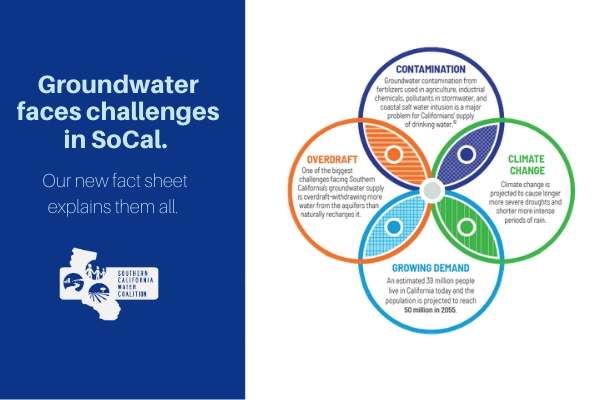Groundwater is an important source of drinking water for Southern California and the state.
California uses more groundwater than any other state in the nation. Approximately 85 percent of Californians depend on groundwater for a part of their water needs. Some rely on groundwater as their primary or only source of water.
Groundwater is especially vital for Southern California, spanning Los Angeles, Orange, San Diego, San Bernardino, Riverside, Ventura, Kern, and Imperial counties. These areas include growing urban metropolises, agricultural producers, industrial centers, and desert communities – all of which rely on water to thrive.
How can we protect groundwater for the future?
Southern California’s future depends on a commitment to smart, innovative, and integrated water management. State and local agencies are taking important steps to modernize our systems, increase conservation, and move toward a more integrated approach.
Preventing Overdraft and Replenishing Groundwater
California enacted the Sustainable Groundwater Management Act in 2014 to help communities stop groundwater overdraft and create balance between groundwater use and replenishment. This will help improve the sustainability of groundwater supplies in the future. Before 2014, many of the groundwater basins across the state, mostly in Southern California, were successfully managed under a watermaster or other form of governance to ensure sustainable groundwater pumping and replenishment.
Preventing Contamination and Treating Contaminated Groundwater
Treating contaminated water is difficult and expensive. Preventing contamination from fertilizers, chemicals, and other pollutants in the first place is the best way to keep our groundwater supply safe.
Learn more about groundwater, its importance to Southern California and how you can conserve it in our latest fact sheet.
